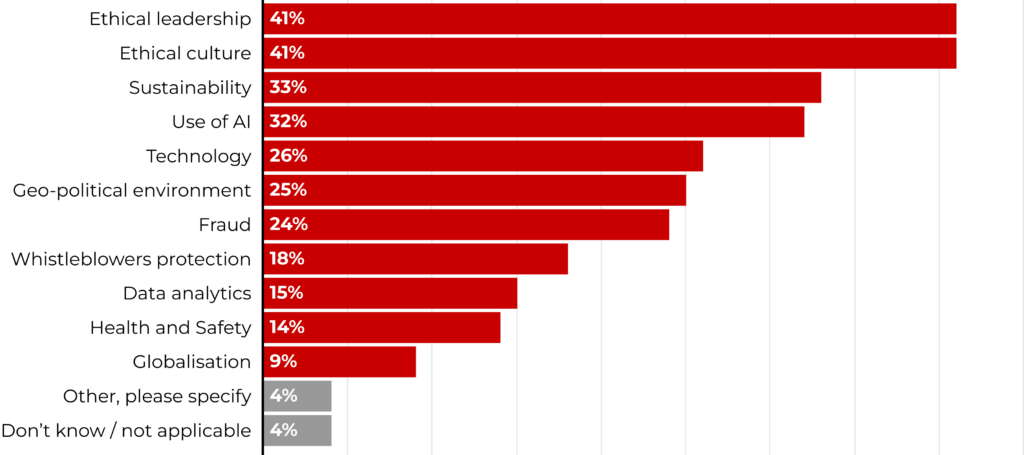Accountants are now facing a new era of ethical challenges, as a recent research by the Association of Chartered Certified Accountants found that leadership, culture, and sustainability are the top three areas of concern.
According to the study, ethical dilemmas are becoming more complex amid a rise in business scandals and evolving expectations. Sixty-eight percent of respondents in Asia Pacific said that ethical dilemmas have become more difficult to resolve in the past three years.
The ACCA report highlighted the evolving nature of ethical challenges and the increasing complexity of ethical dilemmas in the accountancy profession, revealing that 55% of accountants globally have witnessed unethical behaviour in their career and almost one in four (24%) have been put under pressure to behave unethically in the last three years.
The study also found that more men have experienced ethical pressure than women: 27% of males have been put under pressure to act in an unethical way, compared with 19% of females.
The respondents were asked to name their top three areas for ethical challenges over the past three years, and the top results were:
leadership and culture (40%)
AI and technology (32% and 26%)
sustainability (30%)
While key themes were consistent globally, ACCA says there are nuances across regions in terms of top challenges over the last three years – depending on the culture and environment domestically.

In the Asia Pacific, there were balanced concerns on AI, sustainability, and fraud. Globalisation, driven by technology, is facilitating businesses to expand across borders – which in turn creates new ethical challenges emerging due to regional variations including cultural, legal, and economic factors.
While the drivers of complexity in ethical dilemmas are broadly similar globally – the frequency and perceived acceptability of certain practices seem to vary by region.
In Asia Pacific, specific challenges include pressure to manipulate accounts, issues with audit quality due to time and resource constraints, and cultural factors such as a reluctance to challenge authority. The differences underscore the importance of considering local factors in promoting and enforcing ethical standards, while the similarities highlight the need for a global commitment to integrity in the profession.
ACCA says in a press release that the nature of where we work has also transformed during this time. With people often working remotely, and individually while part of a team, when ethical challenges do arise, they’re potentially resolving them in a different way.
There are also key areas for senior leadership to address in the near future: mental health and wellbeing, professional competence and continuous learning, technology and data ethics, ethical leadership and governance, diversity, equity and inclusion and sustainability reporting.




